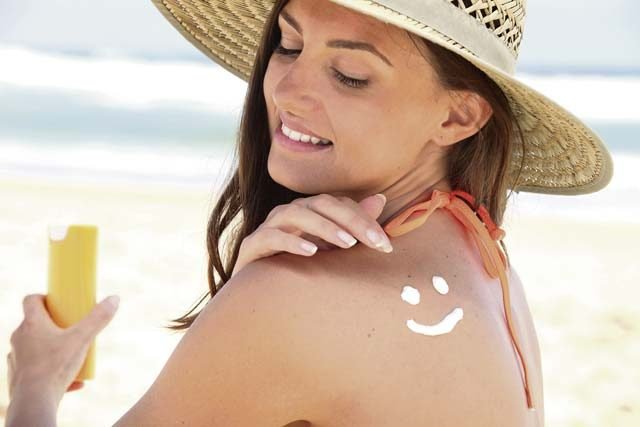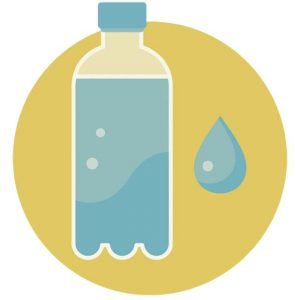
Editor’s Note: Content provided exclusively by AdvantiPro, publisher of The Citizen and Military in Germany.
By Katie F. Boltuch
Contributing writer
Summer is a great time for the outdoors, grilling, picnics and relaxing. But just because we want to have fun doesn’t mean we can’t stay safe. Here are some tips to help make your summer the best, and healthiest, one yet.
 The Sun
The Sun
Sunshine on my shoulders makes me happy, but sunburn on my shoulders makes me cry. We tend to wear less clothing in the warmer months, which leaves our skin exposed. Kids and adults are at a greater risk for sunburns during the summer months. According to the Centers for Disease Control and Prevention, only 58 percent of adults practice proper sun safety procedures. Put aside your excuses and put on the sunscreen, preferably one with a sun protection factor of at least 15 and both ultraviolet A and ultraviolet B protection. Put it on at least 30 minutes before going out in the sun and apply generously.
Be sure to take these additional precautions:
● Seek shade, especially during the midday hours when UV rays are strongest and do the most damage.
● Cover up with clothing to protect exposed skin. A long-sleeved shirt and long pants with a tight weave are best.
● Wear a hat with a wide brim to shade the face, head, ears and neck.
● Grab shades that wrap around and block as close to 100 percent of both UVA and UVB rays as possible.
● Reapply sunscreen throughout the day.
 The Heat
The Heat
Heat-related illnesses claim the lives of hundreds of people each year. These tips will help you prepare for working or playing outside during the hot summer months.
● Stay inside during the hottest hours of the day, which are from 10 a.m. to 4 p.m.
● Drink plenty of water or other nonalcoholic beverages. According to a heat exhaustion study done by Texas A & M AgriLife Extension Service, when temperatures climb above 90 degrees, it’s important to drink at least a gallon of liquid per day.
● Wear lightweight, loose-fitting clothing that is light in color.
● Move your exercise routine to early in the morning or late in the evening.
● Never ever leave a person or a pet in the car in hot conditions while you run to do a quick errand. People and animals can succumb to heat exposure and death very quickly in a hot car, as cars can become overheated quickly.
 The Water
The Water
According to the Consumer Product Safety Com-mission, drowning is the leading cause of death for children under the age of 4 years old. Additionally, 390 children die each year on average from water-related accidents. Whether you’re at the pool, beach, lake or water park this summer, keep these safety tips in mind.
● Avoid swallowing pool water or even getting it in your mouth.
● Even if there is a lifeguard on duty, keep an eye on your children. It only takes a few moments for a drowning to occur.
● Never swim alone or in unsupervised locations. Teach children to always swim with a buddy.
● Don’t use swimming aids, such as water wings, for children in the place of life jackets or preservers.
● Shower before swimming and wash your hands after using the restroom or changing diapers.
● Take children on bathroom breaks often.
 The Bugs
The Bugs
No discussion of safety topics for summer would be complete without talking about bugs. Stinging insects are busy making the rounds of the flowers, and there are many varieties of bugs, like ticks and mosquitoes, waiting for their next innocent victim. To help make yourself and your child a less-attractive meal, avoid scented perfumes and soaps in the summer as well as pools of stagnant water, open food and gardens heavy with blooms. Also, consider using a bug repellent that contains diethyltoluamide, more commonly known as DEET. Follow these tips for applying bug repellent to make sure you are fully covered.
● Never use bug repellents under clothing, only on exposed skin or clothes.
● Keep repellent away from your nose, mouth and eyes, and be careful with it around your ears.
● Start with a thin film of repellent. If this doesn’t keep the bugs away, use more.
● Most repellents should be washed off your skin and clothing every day.
● Don’t allow children to handle bug repellent, and don’t apply it to their hands.
● Repellents with oil of lemon eucalyptus should not be used on kids under 3 years old.
